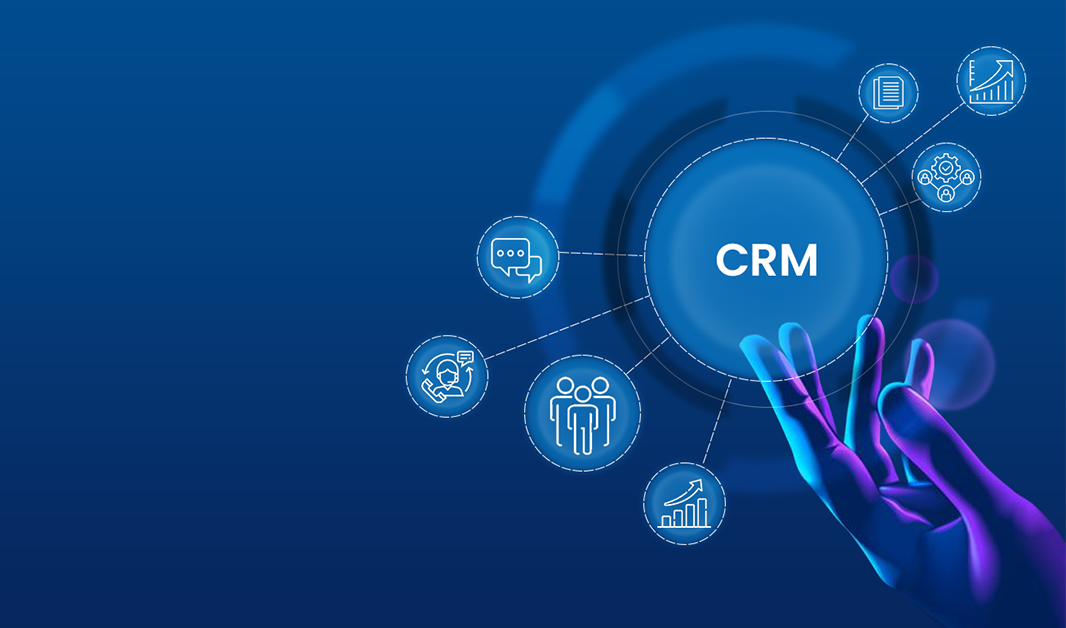
How AI-driven algorithms empower CRM
AI-driven algorithms boost CRM by automating data analysis, improving predictions, personalizing experiences, and increasing sales.
How AI-Driven Algorithms Empower CRM to Redefine Customer Relationships
In the digital age, where every click, call, and comment generates data, businesses are drowning in information but starving for insights. Traditional CRM systems, built to organize contacts and log interactions, often fall short in turning this deluge of data into meaningful relationships. Enter AI-driven algorithms—the silent architects transforming CRM from a static database into a dynamic engine of empathy, precision, and growth. By decoding patterns invisible to the human eye and automating hyper-personalized engagement, AI isn’t just enhancing CRM—it’s reimagining how businesses connect with customers.
The Data Alchemy: Turning Noise into Narrative
Raw data—purchase histories, support tickets, social media likes—is meaningless without context. AI algorithms perform the alchemy of turning this noise into narrative. Machine learning models analyze terabytes of data to uncover hidden correlations: perhaps customers who buy organic skincare products are 60% more likely to engage with sustainability-focused email campaigns, or B2B clients who attend webinars convert 3x faster than those who download whitepapers. A luxury car dealership used these insights to discover that clients who test-drove vehicles on weekends responded best to follow-up calls on Tuesday mornings. By revealing these micro-trends, AI transforms CRM from a record-keeper to a storyteller, crafting strategies that resonate with individual buyer journeys.
Predictive Engagement: Anticipating Needs Before They’re Spoken
Gone are the days of reactive customer service. AI-powered CRM predicts needs by analyzing behavioral trails. For instance, if a SaaS user’s login frequency drops while support ticket sentiment sours, the system triggers a personalized check-in email with a tutorial video. A retail bank used similar logic to identify customers likely to apply for home loans—based on salary deposits and browsing history—and pre-approved them with tailored rate offers. These algorithms don’t just wait for signals; they decode intent from silence, reducing churn by up to 35% and boosting cross-sell rates by 22%.
Dynamic Content Creation: The End of Generic Messaging
Generic email blasts and cookie-cutter proposals erode trust. AI algorithms personalize CRM content at scale by synthesizing customer data with external factors like market trends or weather patterns. A travel agency’s CRM, for example, auto-generates emails suggesting rainy-day itineraries to clients visiting Seattle during storm season. For B2B sales, natural language generation (NLG) tools draft proposals that mirror a prospect’s industry jargon and pain points. One IT firm reported a 40% increase in RFP wins after using AI to align proposal language with each client’s annual report priorities.
Sentiment Analysis: Reading Between the Lines
THuman agents might miss subtle cues in emails or calls, but AI doesn’t. Sentiment analysis algorithms parse tone, word choice, and speech patterns to gauge emotional undercurrents. During a support call, real-time AI can alert agents: “Customer’s voice stress spiked at ‘delivery delay’—offer expedited shipping.” Post-interaction, it tags CRM profiles with sentiment scores, enabling tailored follow-ups. A healthcare provider used this tech to identify frustrated patients before they churned, reducing complaints by 50% through proactive outreach.
Automated Workflows: Liberating Teams from Busywork
AI doesn’t just analyze—it acts. Algorithms automate CRM workflows like lead assignment, follow-up scheduling, and data hygiene. When a high-value lead downloads a pricing sheet, the CRM instantly notifies the sales director and reserves a time slot on their calendar. Meanwhile, AI cleanses duplicate entries and merges siloed data, ensuring every team works from a single source of truth. A logistics company slashed its lead response time from 48 hours to 12 minutes using these automations, converting 20% more prospects.
Ethical Guardrails: Balancing Personalization and Privacy
As AI delves deeper into personal data, ethical concerns mount. Modern CRM algorithms address this with privacy-first design. Federated learning, for instance, trains models on decentralized data without exposing individual records. Explainable AI (XAI) features let users see why a lead was prioritized (“Score: 92/100 due to CEO LinkedIn post about expansion”) or how a recommendation was generated. A fintech firm using transparent AI saw a 30% boost in opt-in rates for personalized offers, as customers trusted the logic behind them.
The Future: Self-Evolving CRM Ecosystems
Tomorrow’s AI-driven CRM won’t just adapt—it will anticipate. Imagine systems that simulate customer reactions to price hikes or product launches, allowing businesses to stress-test strategies. Or algorithms that identify emerging buyer personas before they’re formally defined, like Gen Z entrepreneurs favoring eco-conscious vendors. These systems will act as co-pilots, guiding teams through market shifts with real-time, data-backed intuition.
Conclusion:
AI-driven CRM isn’t about replacing humans—it’s about amplifying humanity. By automating the mechanical and illuminating the meaningful, these algorithms free teams to focus on what humans do best: building trust, sparking creativity, and nurturing relationships. In a world where 73% of customers expect companies to understand their unique needs, AI is the compass that guides businesses through the chaos of data to the clarity of connection. The future belongs to those who don’t just manage relationships but master them—and with AI as their ally, that future is now.